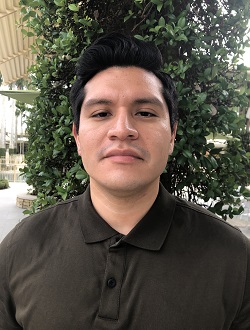In recent years, Disability Pride Month has gained momentum, marking a significant shift towards acknowledging and honoring the experiences of individuals with disabilities. But what exactly is Disability Pride Month, and why is it so crucial?
Understanding Disability Pride Month
Disability Pride Month, observed throughout July, traces its roots back to the early 1990s. It was inspired by the Americans with Disabilities Act (ADA) which was signed into law on July 26, 1990, aiming to protect the rights of individuals with disabilities and promote equal opportunities. This month serves as a time to raise awareness about the challenges faced by people with disabilities and to celebrate their achievements, contributions, and resilience.
The Importance of Disability Pride Month
Celebrating Disability Pride Month is essential because it encourages society to recognize the diversity within the disability community. It shifts the focus from viewing disabilities solely through a medical lens to appreciating them as facets of identity and strength. By fostering pride and empowerment, this month helps combat stigma and promotes inclusivity in all aspects of life.
The Intersection of Disabilities and Mental Health
Living with a disability can significantly impact mental health. Challenges such as societal attitudes, accessibility barriers, and limitations in daily activities can lead to stress, anxiety, and depression. Conversely, mental health conditions can exacerbate physical limitations, creating a complex interplay between mind and body. Understanding these dynamics is crucial for providing effective support and intervention.
How Counseling Can Make a Difference
Counseling plays a pivotal role in helping individuals cope with disabilities. Therapists trained in disability issues can provide emotional support, teach coping strategies, and assist in navigating the psychological impact of living with a disability. By addressing feelings of isolation, frustration, and grief, counseling empowers individuals to enhance their quality of life and achieve emotional well-being.
Supporting People with Disabilities
Supporting individuals with disabilities goes beyond physical accommodations; it involves fostering an inclusive and respectful environment. Simple gestures like actively listening, offering assistance when needed (and accepted), and advocating for accessibility improvements can make a world of difference. Respectful communication is equally crucial, requiring mindfulness about language and avoiding terms that perpetuate stereotypes or diminish individuals’ dignity.
Language Matters: How to Speak Respectfully
When communicating with or about people with disabilities, language choice is paramount. Emphasizing person-first language (e.g., “person with a disability” rather than “disabled person”) respects individuals’ identities beyond their disabilities. Additionally, avoiding euphemisms or overly medical terms can promote a more inclusive dialogue that focuses on capabilities rather than limitations. Here are some “dos and don’ts” for speaking respectfully towards those with disabilities.
- DO ask for preferred terminology: Respectfully inquire about how the individual prefers to be described or identified.
- DON’T use offensive terms: Avoid using outdated or offensive terms like “handicapped,” “crippled,” “broken”, “defective”, “wrong”, or “retarded.” Avoid using negative language that reinforces stereotypes or diminishes their dignity.
- DO use “Person-First” language: Use phrases like “person with a disability” rather than “disabled person”.
- DON’T define individuals by their disability: Avoid defining people solely by their disability (“the blind person” “the wheelchair-bound”).
- DO focus on abilities: Highlight what the person can do rather than focusing solely on limitations.
- DON’T make assumptions: Do not assume what a person can or cannot do based on their disability. Don’t assume all individuals with disabilities need assistance or that they can’t do things independently.
- DO be respectful and empathetic: Treat individuals with disabilities with the same respect and empathy as you would anyone else.
- DON’T patronize or pity: Avoid speaking in a patronizing or pitying tone, which can undermine their capabilities. Treat individuals with disabilities with the same common courtesies and respect as you would anyone else.
- DO offer assistance respectfully: Offer assistance if needed but wait for acceptance before helping.
- DON’T ignore their preferences or speak over them: Respect their preferences for assistance or accommodations rather than assuming what they need. Allow individuals with disabilities to speak for themselves and avoid speaking over or for them.
- DO educate yourself: Take the initiative to educate yourself about different types of disabilities and their impacts.
- DON’T dismiss their experiences: Don’t dismiss or downplay their experiences or challenges related to their disability. Every person with a disability experiences their disability differently.
Speaking respectfully towards people with disabilities involves using inclusive and person-first language, respecting their preferences, acknowledging their abilities, and avoiding language or actions that demean or stereotype. It’s about fostering communication that promotes dignity, equality, and understanding for all individuals, regardless of their abilities or challenges.
Advocate for Others
Advocating for people with disabilities in your community begins with awareness and action. Start by educating yourself and others about different types of disabilities and the challenges individuals may face. Support initiatives and organizations that promote accessibility and inclusivity, whether it’s advocating for wheelchair ramps, accessible parking, or sign language interpreters at community events. Listen to the voices of individuals with disabilities and amplify their concerns and needs. Encourage local businesses and public spaces to comply with accessibility standards and provide feedback when improvements are needed. Foster an inclusive environment by promoting events and activities that welcome participation from all community members. By being proactive and inclusive in your advocacy efforts, you can help create a community where everyone can fully participate and thrive.
Accept, Understand, and Respect Differences
Disability Pride Month serves as a powerful reminder of the importance of acceptance, understanding, and respect for individuals with disabilities. By celebrating their strengths and acknowledging their challenges, we pave the way for a more inclusive society where every person can thrive. Through counseling and conscious efforts to support and communicate respectfully, we can create environments that empower individuals with disabilities to live their lives to the fullest. Let’s embrace diversity, celebrate resilience, and continue to advocate for a world where everyone’s unique abilities are valued and respected.

![[7.12] Disability Pride Month Blog](https://swflcounsel.com/wp-content/uploads/2024/07/7.12-Disability-Pride-Month-Blog.jpg)







